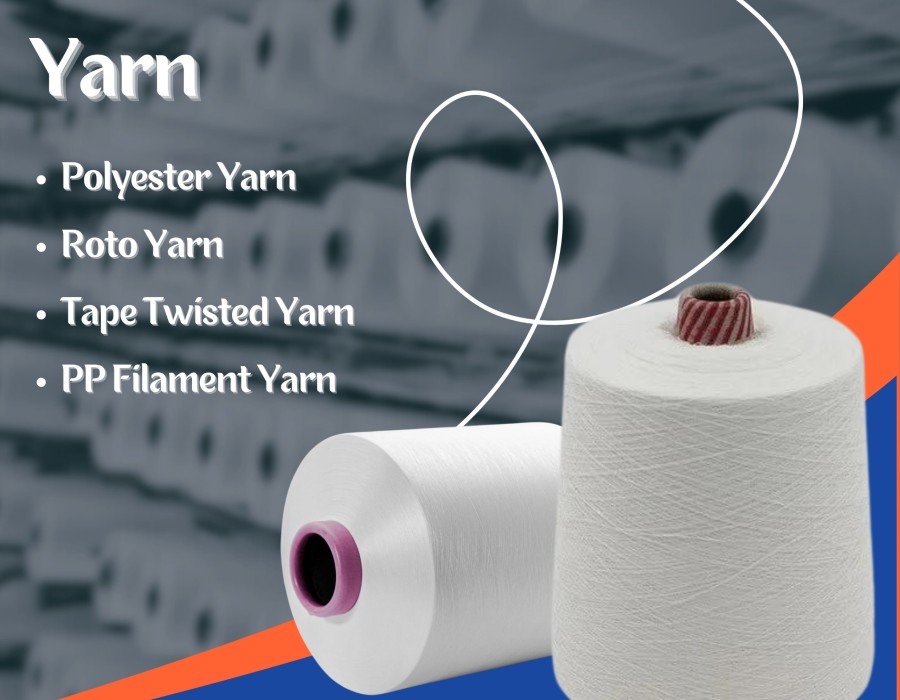Introduction
Polypropylene yarn is a versatile synthetic fiber widely used across industries for its durability and resistance to various elements. It’s derived from polypropylene, a tough plastic known for its strength and light weight. In textiles, it’s valued for its affordability and ability to withstand wear and tear. Beyond textiles, it’s used in construction, agriculture, and industrial settings due to its strength and resistance to chemicals and UV rays. In this guide, we’ll explore its properties, types, customization options, and applications, highlighting its importance in diverse fields.
Understanding Polypropylene: Properties and Characteristics
Polypropylene, often abbreviated as PP, is a versatile thermoplastic polymer renowned for its exceptional properties and wide-ranging applications. Let’s delve into the key characteristics that make polypropylene a preferred choice across industries.
- Lightweight and Durable
- Chemical Resistance
- High Heat Resistance
- Moisture Resistance
- Flexibility and Moldability
- Recyclability
In summary, polypropylene stands out for its lightweight, durable, and chemically resistant properties, making it indispensable across a multitude of applications. From packaging materials to automotive components, polypropylene continues to demonstrate its versatility and reliability in diverse industries worldwide.
Types of Polypropylene Yarn
Polypropylene yarn, with its versatility and durability, encompasses various types catering to diverse industrial and commercial needs. Understanding each type is crucial for optimizing applications. Let’s delve into the key characteristics and applications of different polypropylene yarn varieties:
1. Polyester Yarn:
Polyester yarn stands out for its exceptional strength and resilience, making it ideal for applications requiring durability.
2. Roto Yarn:
Roto yarn is renowned for its uniformity and smooth texture, achieved through a specialized spinning process.
3. Tape Twisted Yarn:
Tape twisted yarn features a distinctive structure characterized by twisted flat filaments, offering enhanced surface area and strength. This construction lends itself well to applications requiring dimensional stability and robustness.
4. PP Filament Yarn:
PP filament yarn is prized for its lightweight yet durable nature, making it a preferred choice for a wide range of applications.
Customization Options for Polypropylene Yarn
Polypropylene yarn offers a myriad of customization options, allowing manufacturers to tailor the yarn to specific requirements and applications. Understanding these customization choices is essential for optimizing product performance and meeting customer needs.
- Color
- Denier
- Twist
- Additives and Treatments
Specialty Applications of Polypropylene Yarn
Polypropylene yarn serves diverse purposes across industries due to its exceptional properties:
- Textiles and Apparel
- Geotextiles and Agriculture
- Industrial and Technical Applications
Conclusion
Polypropylene yarn emerges as a versatile and durable material, prized for its resilience in various industries. With exceptional properties like chemical and moisture resistance, along with high heat tolerance, it serves diverse applications from textiles to industrial settings. Through customizable options like color, denier, and additives, polypropylene yarn offers tailored solutions, driving innovation and sustainability. Its role in specialty applications such as sportswear, automotive upholstery, and geotextiles underscores its adaptability and reliability. As industries evolve, polypropylene yarn remains a strategic choice, ensuring efficiency, durability, and environmental consciousness in manufacturing processes worldwide.





Comments